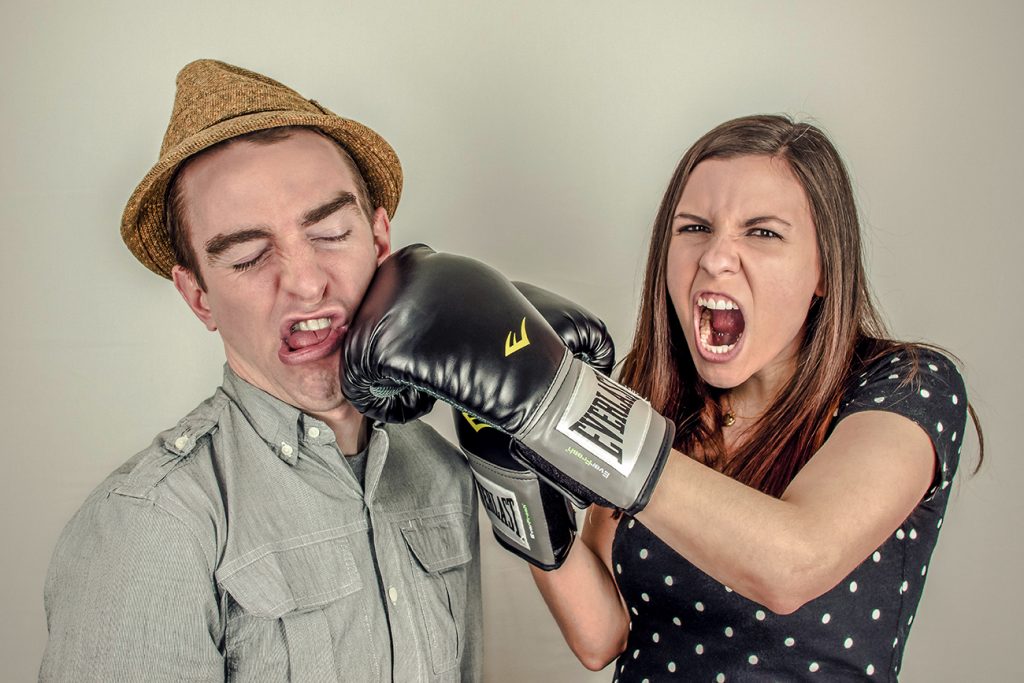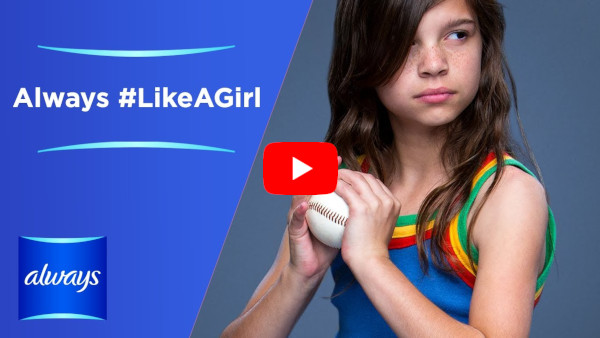Have you ever been told that you hit like a girl, or run like a girl, or do anything “like a girl”? It’s an expression thrown around more so by young male children than anyone else, but unfortunately it’s not so uncommon among adults either.
When you’re told that you do something like a girl, it basically means that you’re not doing it well, or at least not as well as a male. For example, if you hit like a girl it means that you don’t hit hard. If you run or throw like a girl it means that you’re uncoordinated and look awkward running or throwing.
Being told that you do something like a girl is essentially an insult, meant to demean you or put you down. It really is a terribly hurtful expression because it can cause a loss of confidence and a sense of worthlessness for young girls.
The video below makes a really moving and insightful statement about the ugly expression, “like a girl”.
In the video they ask the question, “When did doing something ‘like a girl’ become an insult?” I personally have no idea when this expression started, but I do know that despite being a just a schoolyard taunt, some males never grow out of the mindset.
Perhaps it’s true that, because of their varying interests, young girls on average develop attributes associated with physical dexterity at a slower rate than that of boys. It’s also a fact that males inherently have more muscle mass than females.
But in no way does that mean that females can’t reach just as high a level of athletic performance, or any other type of performance for that matter, than males if they choose to. Just because males are naturally larger and stronger than females, is that a reason to categorize females as inferior?
Sadly, for some males it is. But would any male ever say to another male, “You hit like a smaller guy”? I hardly think so.
The video below shows an excerpt of an episode of ESPN’s Sports Science, where they compared the punching power of a male Olympic boxer with that of a champion female boxer (Lucia Rijker).
The results of the tests showed that Lucia was actually the harder puncher of the two, supposedly putting to rest the notion that girls can’t hit, and therefore also the expression, “hit like a girl”.
But for me the result itself wasn’t necessarily the most significant thing. After all, it was just one test with only two individuals participating.
What I found more revealing was the huge number of “thumbs down” the videos scored on YouTube, and the flood of bitter comments by males making excuses for why the test wasn’t fair, how Lucia cheated, how they would be considered sexist if she had lost, how in the real world Lucia wouldn’t have won, and so on, and so on. One commenter even accused her of being a transgender!
This type of response to the outcome off the test clearly shows how, in many cases, the competitiveness and insecurity of young adolescent boys doesn’t necessarily disappear when they get older.
Fortunately, society as a whole has progressed some way toward realizing and respecting the potential and abilities of women, but of course there’s still a long way to go. Nowadays one doesn’t have to look far to see the amazing achievements of females.
And yes, even female athletes. In the world of fitness that we all know and love, for example, there’s certainly no shortage of bona fide female “bad asses”.
Women today are more confident and more empowered than ever before, but the problem for many younger girls is that they don’t often develop this mindset until they’re older. So when they’re told that they can’t do things, or they’re taunted for being “like a girl” in their younger, formative years, it leaves mental and emotional scars that often take years to overcome, if indeed they ever manage to do so.
In Gloria’s case, for example, she was constantly taunted and put down as a young girl, particularly by her older siblings, and told that she couldn’t do anything. And it consequently took a large part of her life to finally overcome that negative programming and find her true inner strength.
One of the reasons that I personally chose to focus on women’s fitness alongside Gloria is that I generally find women more inspiring than men. Of course I have my male heroes and role models, but among “everyday” people, if I can use that term, I believe women to show more inner strength, more grit, and more determination than males on average, while making less noise about it.
It’s ironic to me that terms such as princess, drama queen, hissy fit, and bitch (the verb) exist to specifically describe and refer to supposed weaknesses or inferiorities of women, and that there are no male equivalents to these. To insult a male one would simply use one of these terms (or others, such as bitch – the noun) to suggest he’s “like a girl” (a terrible insult!), which of course is indirectly demeaning women at the same time.
The reason I find this ironic is that as I said, in my experience it’s in fact women who will generally endure more hardship, push themselves and train harder with no complaints, excuses, whining, moaning and gloating, on average. And yet they’re the ones who are labeled as inferior.
I think that a culture needs to be encouraged where comments and terms that are specifically derogatory to females, whether they’re directed at females or males, and whether they’re used by males or females (yes, women are also guilty of using female-demeaning terms against other females) are considered totally unacceptable.
As adults we may sometimes see these as harmless or even amusing, but the problem is that children are like sponges, and this attitude inevitably finds its way into the minds of young girls where it can do a lot of harm to their development into hopefully strong and confident individuals.
I’m sure that all women are proud of being women, and it’s important to show and articulate that often, and to not tolerate the putting-down of women. It’s despicable and ignorant, not to mention harmful to the next generations.
If you’ve ever been told that you do something like a girl, or if you’ve ever been put down or made to feel inferior for being a woman, please let me know in the comments below. If you have a daughter, what do you do to ensure she grows up with pride in who she is and self-confidence?




